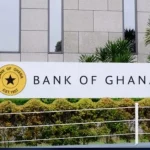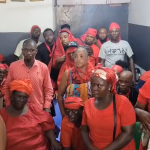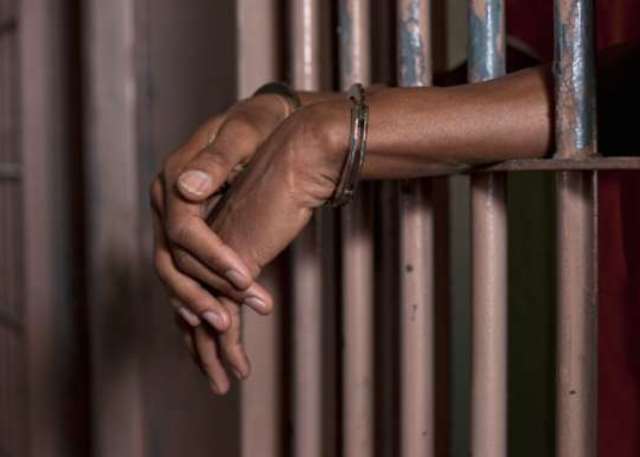Consumers of Liquefied Petroleum Gas (LPG) will pay more for the product as marketing companies increase prices up to 5 per cent.
The increment has already taken effect as some vendors sell LPG for GHC9.70 per kilo.
This implies that anyone who wishes to fill a 14.5 kg cylinder would pay GHC140. About a month ago, the same cylinder volume was GHC 121 at some outlets.
This is due to the rising fuel cost on the international markets, with prices hitting $114 per barrel due to supply constraints caused by the ongoing Russia-Ukraine war.
Vice-Chairman of the LPG Marketers Association of Ghana, Gabriel Kumi, says the skyrocketing prices deter consumption by the public with a preference for other alternatives such as charcoal.
This has resulted in some marketers cutting down labour, and Mr Kumi cautions of further consequences if the situation is not addressed.
“Consumption of LPG is on a serious decline, and if measures are not taken and the price continues to go up as it is doing now we are afraid consumption will keep declining and there will be a lot of negative consequences to that,” he bemoaned.
“Some of our members are no longer able to keep up with employment because once the volume goes down, you can’t have the necessary margin to sustain employees. So, some have started laying off workers”.
Mr Kumi said some African countries such as Cote d’Ivoire are subsidising LPG by about 30 per cent.
However, in Ghana, subsidies have been scrapped, and an additional 20% tax placed on the product.
“The first step that government must take is to take off the taxes from the product,” he admonished.
He believes lower prices will drive consumption and save the country’s forests from deforestation due to the use of trees for fuel.
He pointed out in an interview with Joy News on Wednesday, 2 March 2022, that “failure to do that would make it difficult for Ghana to achieve a 50% LPG penetration target set by the government for 2030”.
Other fuel prices surge
LPG is not the only product witnessing an increment in prices as other products from crude oil such as petrol and diesel have also recorded sharp spikes.
On Tuesday, 1 March 2022, fuel prices crossed the GHS8-per litre mark at some selected pumps across the country, with industry analysts suggesting that it could hit GH9-per litre by the end of March.
This is happening less than a week after commercial vehicle operators increased transport fares by 15%.
The ripple effect would be the rise in the cost of goods and services across the country.
Meanwhile, Deputy Minister for Energy, Andrew Agyapa Mercer, has explained that the government was considering several options to support consumers from the financial burden.
“It’s unfortunate, and we as a government have taken inputs from the NPA [National Petroleum Authority] as an agent of the ministry to forward to the Ministry of Finance to take a look at, and subsequently submit to the Cabinet for some direction on what further relieves – if any that government could introduce to cushion Ghanaians.”
He was concerned that “the price has gone up beyond the reach of many Ghanaians”, which requires some action from authorities.
“We ought to begin the conversation as to whether we as a nation have to set a ceiling beyond which the deregulation is suspended for government intervention to be introduced. That’s a conversation we should have because whatever subsidy from the government will have to be paid for,” Mr Mercer said.
He added that stakeholders were still deliberating on the matter “so NPA will come out with the best decision that will be in the interest of all”.
He was speaking in an interview with Joy FM.
What can be done to address the situation?
The Executive Secretary of the Chamber of Petroleum Consumers (COPEC), Duncan Amoah, told The Ghana Report, “We have a local refinery that we could have leveraged to get some fuel security at lower prices, but unfortunately, we don’t think there is a political will to refurbish the Tema Oil Refinery”.
Mr Amoah observed a fully functional refinery would cut the logistical cost, which adds to the price build-up by exporting crude to Europe to be refined before importing back to Ghana.
“They need to get TOR back on stream, and the need for political interference to be stopped holds the key for all for us,” he underscored.
Additionally, he cited the Bulk Oil Storage and Transportation Company Limited (BOST) failure in executing its mandate.
Mr Amoah explained that BOST is supposed to store huge volumes of fuel and release to the market to level prices and check shortages “without overstretching the already burdened Ghanaian taxpayer”.
However, “we do not see that function of BOST, and they are now focusing on trading…which was not the purpose of the BOST Act but to hold strategic stock”.
















